Mumbai Girl Helps Society Recycle 80% Waste, Upcycles Cardboard into Stationery!
The inspiring teenager also organises annual fundraisers in her society for the education of slum kids from Dharavi. Apart from raising Rs 4 lakhs each year, she also teaches them herself!
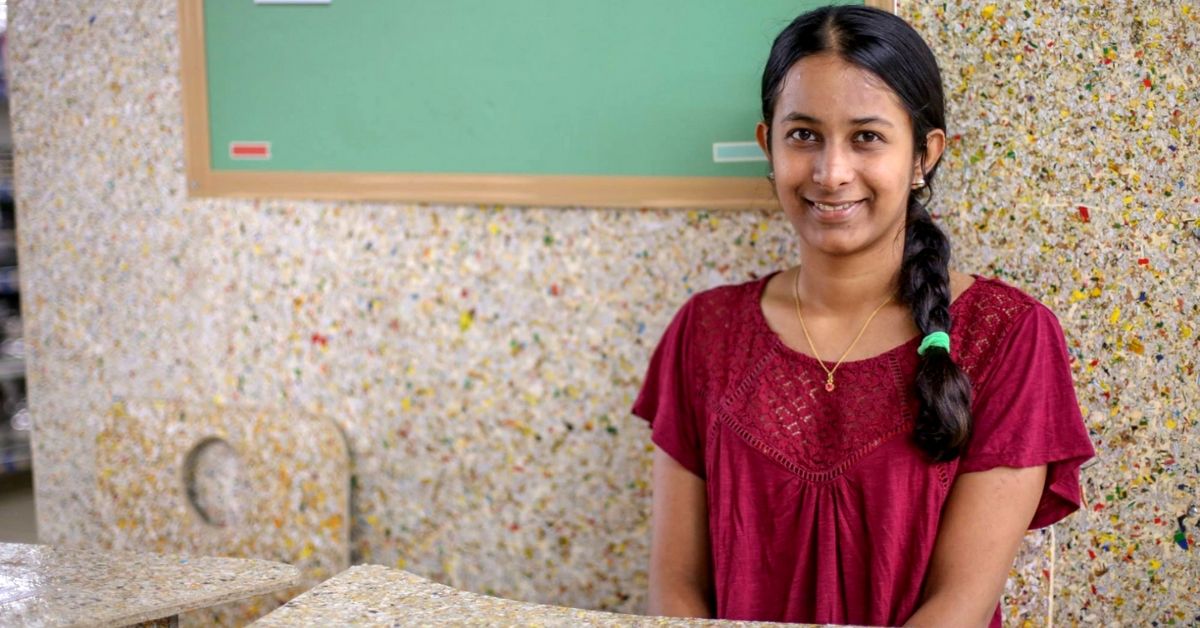
About five years ago, Aarushi Majumder, who was a 13-year-old at the time, decided to start teaching underprivileged children in Mumbai’s Dharavi locality.
With absolute passion and dedication, the teenager would conduct classes, ensuring personal attention to each one of her young students.
Composting is easy, resourceful and if you give it some practice, hassle free too! Give it a try. Check out our user-friendly composting kits, here.
But soon, she realised that some of her students were skipping class. While she was willing to overlook occasional absenteeism, it started to happen regularly enough for her to inquire about the reason.
As it turns out, the kids were falling seriously ill.
“I learned that they spent most of their days collecting waste and working in landfills and the pollution there was affecting their health.
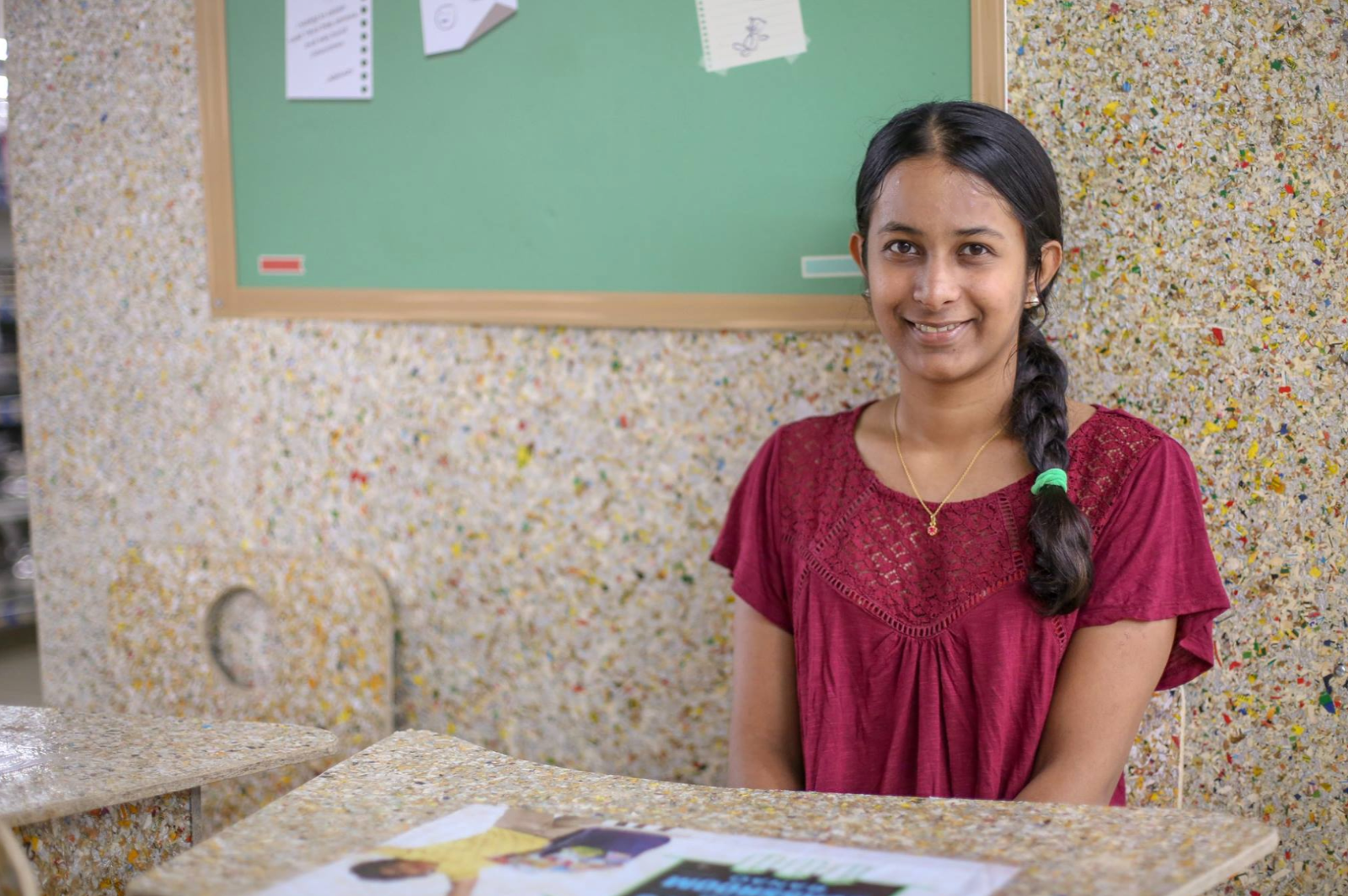
Mumbai is amongst the most polluted cities in the world because of the unmitigated piles of garbage that arrive at the local landfills daily, and these children were subject to the consequences. It was heartbreaking,” Aarushi says in a conversation with The Better India.
Back in 2013, about 9,400 tonnes of garbage, most of it unsegregated and non-recyclable, would end up in Mumbai’s landfills every day, and the burden of it rested on the weak shoulders of the kids from Dharavi.
Troubled by these facts, she decided that she wanted to make a dent in the way the 21+ million people of Mumbai discarded their garbage.
“I took the first step to reduce the amount of waste my family produced by segregating the garbage produced at home. I recycled dry waste, reused what I could, and began composting biodegradable waste. Seven weeks later, not only did I have fertile soil for my plants but had also managed to reduce the garbage output by 80%,” she says.
“This boosted my confidence, so I drew up a standardised waste management plan to present to the Chairman of my apartment complex,” she adds.
Her approach had to ensure that the wet waste was being utilised sustainably and at the same time, reduce the dry garbage from going to the landfill.
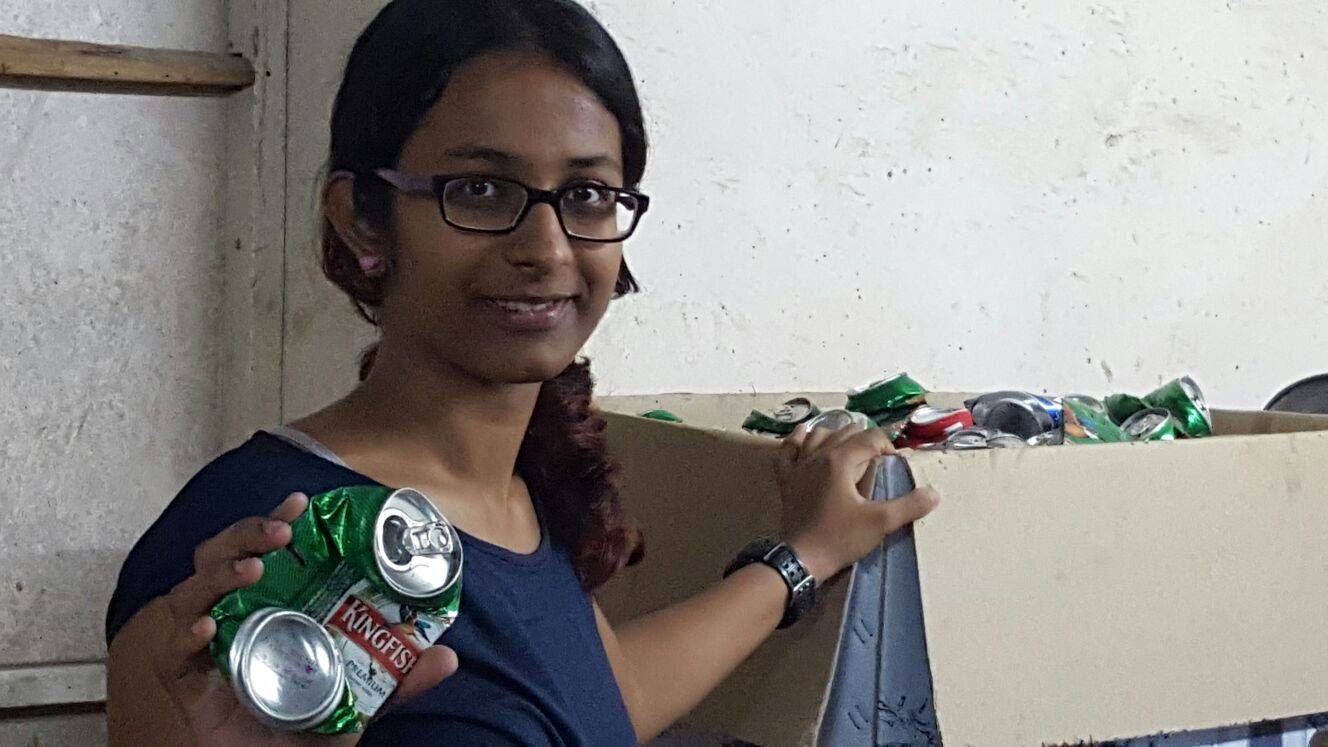
As is usually the case with taking up a community initiative, Aarushi began with creating awareness about the consequences of letting unsegregated waste outside the society and presenting her plans, simple and easily applicable, to the adults of the society.
Colour-coded bins were introduced in the housing society and everyone, including the domestic staff, were trained to segregate waste.
A positive and negative reinforcement mini-programme was also introduced where the society members were added in a social media group, and their actions in terms of segregation or failure thereof were commented on my other members.
“We also taught all the domestic staff in our building how to recycle. I took the initiative of monitoring the compost closely, checking its temperature and pH twice a week. And soon, we successfully reduced the amount of waste that was sent to the dumps. In just four months, the 7 tonnes of monthly waste that we were sending out to landfills was reduced to 1.5 tonnes. We also introduced incentives for in-house staff who were involved in waste management using funds that we generated through selling excess compost outside,” the teen tells us.
If wet garbage was turned into compost, it was only fair to plant a garden which makes optimum use of it.
And so, for the benefit of the residents, the society now grows organic vegetables like coriander, chillies, lemongrass, radish, spinach, and tomatoes.
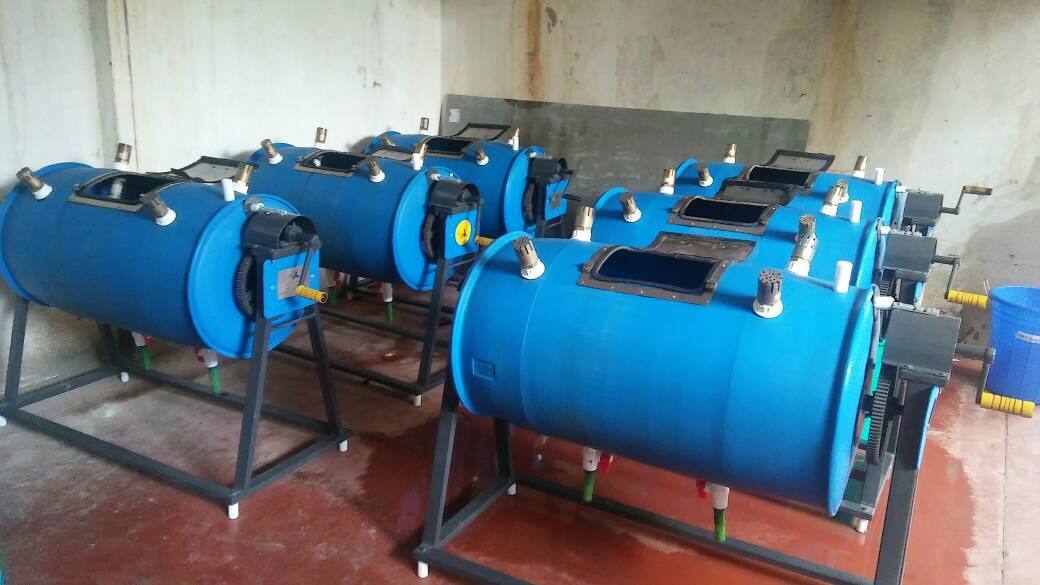
After successfully taking care of wet garbage, Aarushi’s next plan was to reduce the dry waste. Packaging boxes were a significant part of this problem, but Aarushi soon hit upon a solution.
The Tetra Pak cartons and cardboard boxes could be upcycled into beautiful benches, desks and stationery items, and the latter could be donated to underprivileged students, like the ones Aarushi taught, and still teaches.
“Tetra Pak cartons are sent to the recycling plant where the paper is separated from polyethene and aluminium via the hydra pulping process and then converted into many useful products including benches, desks, stationery, among others.
With 6500 Tetra Pak cartons, one can either win a recycled garden bench for the society or donate a desk to an underprivileged school. (There is no monetary cost for the benches and desks),” she explains.
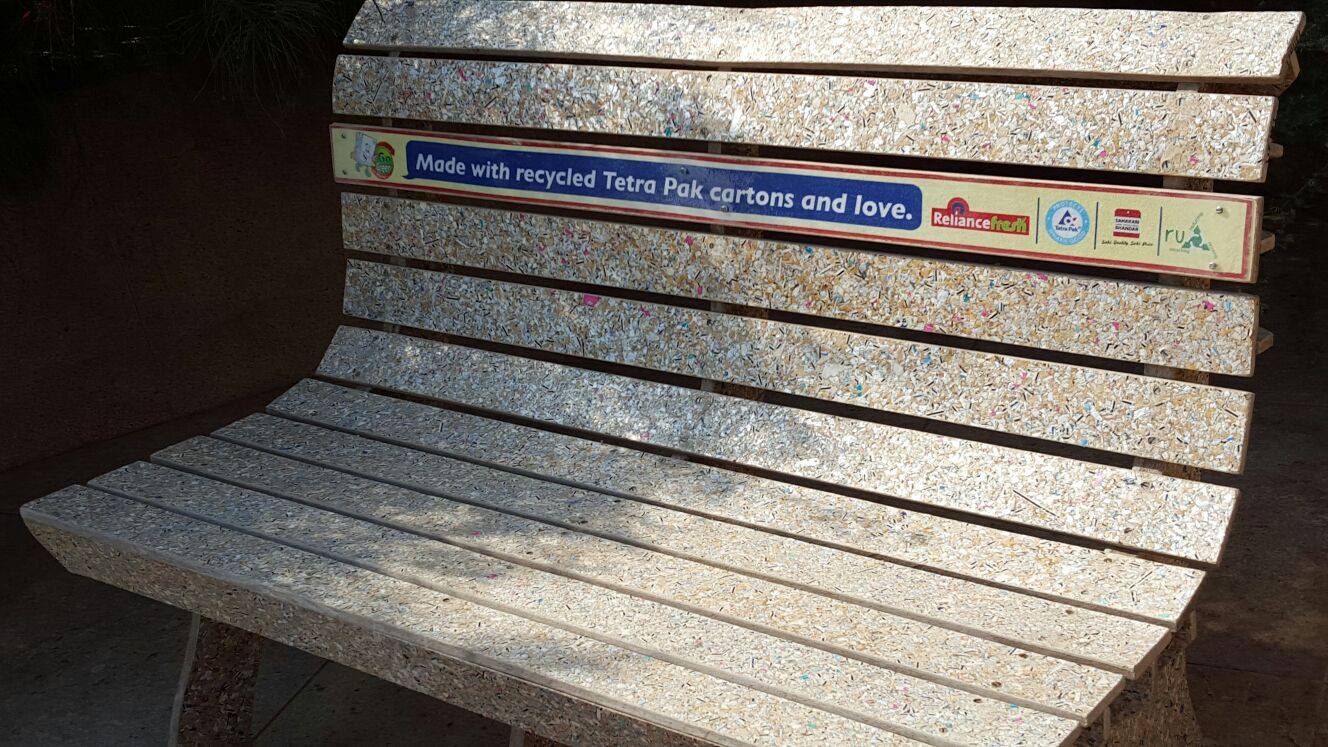
In addition to donating desks to the underprivileged students, Aarushi has also been organising fundraising events since 2017 in her society to aid their education. In the past three years, she has raised approximately Rs 12 lakh.
“Children from my building put on a performance and we call Dharavi Rocks (a band of children from Dharavi) to perform as well. The money collected is donated the amount to the Acorn Foundation where I teach, and is used to provide after class meals, thus incentivising children (and especially girls) to attend classes,” she says.
You may also like: Inspired by Super 30, Rajasthan Doc Provides Free NEET Coaching to Poor Students
Over the years, the now 18-year-old succeeded in helping her society recycle about 80% of her waste.
It is but a drop in the ocean of garbage that terrorises Mumbai, but it is the right step in a more eco-friendly direction. The success of Aarushi’s initiative shows that even an individual effort can be enough to make an impact in the long run.
(Edited by Gayatri Mishra)
Like this story? Or have something to share? Write to us: [email protected], or connect with us on Facebook and Twitter.
If you found our stories insightful, informative, or even just enjoyable, we invite you to consider making a voluntary payment to support the work we do at The Better India. Your contribution helps us continue producing quality content that educates, inspires, and drives positive change.
Choose one of the payment options below for your contribution-
By paying for the stories you value, you directly contribute to sustaining our efforts focused on making a difference in the world. Together, let’s ensure that impactful stories continue to be told and shared, enriching lives and communities alike.
Thank you for your support. Here are some frequently asked questions you might find helpful to know why you are contributing?


This story made me
-
97
-
121
-
89
-
167













